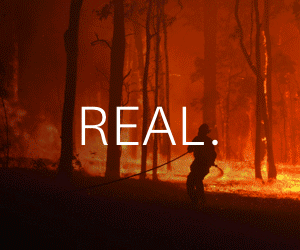AAP FactCheck Articles
Indigenous citizenship myth shrouds 1967 referendum
A myth dating from 1967 continues to spread online ahead of this year's Indigenous voice referendum.
Read more
Fantasy to claim Australia is a corporation
There are claims the Australian government has no right to negotiate an Indigenous treaty because the country is a corporation.
Read more
Referendum rules on ticks and crosses are nothing new
Social media posts claim the rules of the upcoming voice referendum governing valid and informal votes have been changed to favour the 'yes' campaign.
Read more
Mundine misquoted in attempt to question his voice stance
Social media posts are quoting prominent anti-voice campaigner Nyunggai Warren Mundine as saying a 'no' vote will be to our eternal shame.
Read more
Voice failure at 1999 referendum is historical fiction
Misinformation is being spread online that the proposed Indigenous voice to parliament failed to succeed at a referendum 24 years ago.
Read more
Holes in claim Swiss study links jabs to heart disease
The findings of a recent study are being exaggerated to claim it shows COVID-19 vaccines cause myocarditis at a high rate.
Read more
Audio sets record straight on voice meeting stoush
A 'yes' vote campaigner has found himself the subject of misinformation following a heated public meeting in Bundaberg.
Read more
Studies blunt repeated shots at blaming vaccines for autism
Claims continue to spread online that vaccines cause autism, but there are multiple scientific studies thoroughly debunking the belief.
Read more
Mish-mash of misinformation gives climate change a bad name
A social media post claims the term climate change replaced global warming because the theory of planetary heating failed.
Read more
Murky anti-voice letter falsely linked to 'no' campaign senator
A letter claiming the voice will lead to the end of private home ownership is being falsely attributed to Country Liberal senator Jacinta Nampijinpa Price.
Read more
No, Indigenous people were never classified as fauna
An urban myth about the legal classification of Indigenous people prior to the 1967 referendum has continued to spread on social media.
Read more
Labor's university figures don't check out
Federal Labor politicians have incorrectly stated that only 13 per cent of young people from regional areas have degrees.
Read more
No, Mundine did not speak in full support of an enshrined voice
Indigenous voice to parliament supporters are pointing to a old video clip of Nyunggai Warren Mundine to suggest the leading 'no' campaigner has changed his tune on the idea.
Read more
Post inflates Indigenous land ownership figure
A Facebook user has claimed that Indigenous people exercise "control" over almost half the land in Australia.
Read more
Videos concoct PM's silence on key voice question
Edited videos of a TV interview with Prime Minister Anthony Albanese are being shared by opponents of the proposed Indigenous voice to parliament.
Read more
Engineers deflate flat-earth funnyman's theory
A comedian claims the earth isn't a globe, and as evidence says civil engineers and aircraft pilots never factor in the planet's curvature.
Read more
Native fauna trademark fight fails to land any intellectual blows
A video claims First Nations people have trademarked Australian plants and animals and governments are illegally using them as logos and symbols.
Read more
Voice referendum pamphlet claim doesn't measure up to scrutiny
There are claims that arguments published in the official Indigenous voice to parliament referendum pamphlet are not the same length.
Read more
Altered photo paints false picture of minister's voice stance
A photo on Facebook purports to show a leading Indigenous MP standing in front of a sign expressing strident opposition to the voice to parliament.
Read more
'Open the oyster' claim confused on many levels
A Facebook post claims a 'yes' result at the referendum would allow the government to make any changes it wants to the constitution relating to the voice or Indigenous people.
Read more

























